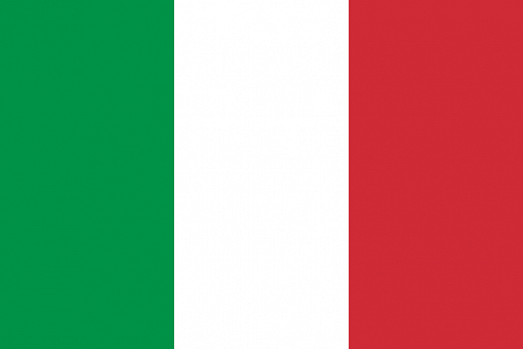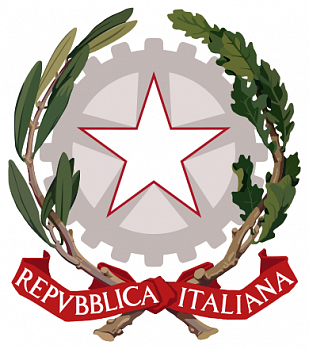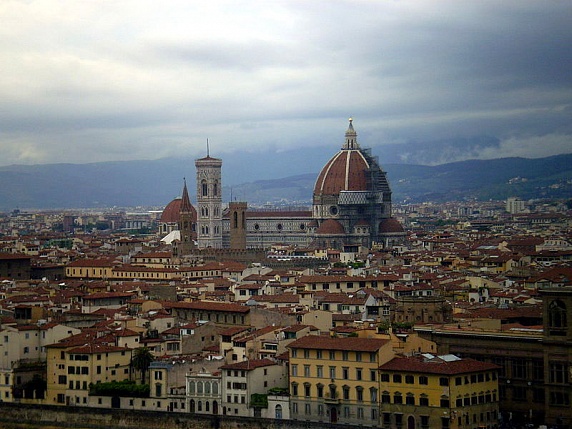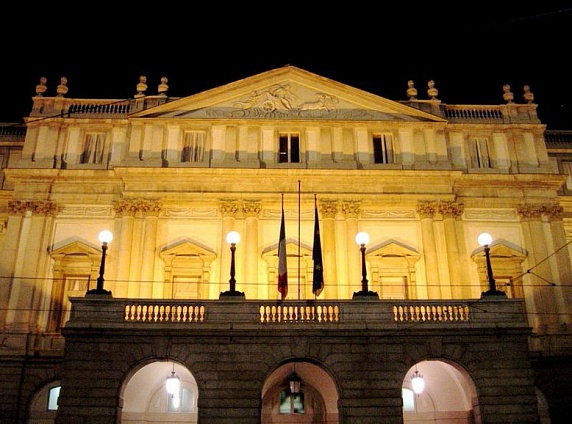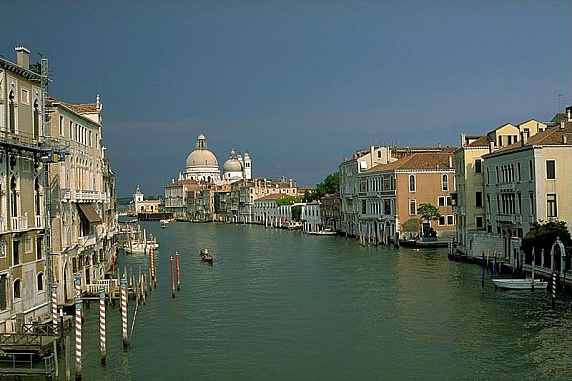 Italienische Republik
Italienische Republik
Foreign Minister Sergey Lavrov’s remarks and answers to media questions during the joint news conference following Russian-Italian talks between foreign and defence ministers in the two-plus-two format, Rome, February 18, 2020
Ladies and gentlemen,
I would like to express my gratitude for the hospitality we traditionally receive in Italy.
I completely agree that the fourth joint meeting between the Russian and Italian foreign and defence ministers was held in a constructive manner. The last time we met in this format was in 2013. We find that resuming work in this format is timely and important.
The meeting was preceded by separate talks between the foreign and defence ministers. Defence Minister Sergey Shoigu and I were also received by Prime Minister of Italy Giuseppe Conte.
Following our talks, we came to share the opinion that it was necessary to cooperate within this mechanism, which will make it possible to carry out a deep and detailed analysis of the key modern problems both from the diplomatic and military-political points of view. Today we have outlined a number of areas in which we will try to take joint or coordinated steps.
We focused on security in the Euro-Atlantic region. The situation in this sphere remains unsatisfactory. We believe this is a direct result of the policy of “containing” Russia pursued by the US and several allies, including through recklessly expanding NATO, strengthening the Alliance’s eastern flank, and bringing the military infrastructure immediately adjacent to the Russian border. In this context, we have once again recalled the need to implement the corresponding decision of the 2010 OSCE Summit in Astana signed by all the OSCE members at the highest level, which includes the statement about commitment to the concept of comprehensive and indivisible security based on cooperation. I think no proof is needed that NATO members’ actions are at odds with this statement.
We had a detailed discussion of strategic stability, including issues related to the US withdrawal from the Intermediate‑Range Nuclear Forces Treaty (INF Treaty). We reaffirmed Russia’s readiness, reiterated by President of Russia Vladimir Putin, not to deploy missile systems in regions unless similar US-produced missiles are deployed there. We drew our colleagues’ attention to the fact that last autumn President of Russia Vladimir Putin sent a message to all the NATO leaders as well as leaders of several other countries in order to call for a joint moratorium on the deployment of such systems, but most of them have not given concrete responses yet. President of France Emmanuel Macron was the only exception. I noted with satisfaction that several days ago Foreign Minister of Italy Luigi Di Maio also said in an interview that Italy saw no reason to decline President Putin’s invitation for a dialogue and called for accepting it. We welcome this approach.
We discussed the developments around the Strategic Arms Reduction Treaty (New START). As you know, there are problems with its prolongation. The US does not reply to our numerous suggestions to do it right now. We spoke about the Comprehensive Nuclear‑Test‑Ban Treaty (CTBT), which the US officially decided not to ratify. All of this, of course, does not create a favourable atmosphere in the context of preparations for the next Review Conference of the Parties to the Treaty on the Non-Proliferation of Nuclear Weapons scheduled to take place in a couple of months.
We had a productive exchange of views on urgent regional issues. In part, we have the same view on the need to ensure the peace settlement in Libya through broad national dialogue. We discussed ways of implementing decisions made at the Berlin Conference last January. Russia considers it essential that further progress should be based only on motivating the Libyan sides to agree to specific practical steps. Naturally, it is necessary to respect the prerogatives of the UN Security Council. We agreed to maintain a close dialogue on Libya and hold special consultations on this issue in the foreseeable future – in a few weeks.
As for Syria, we have a common view on the need to ensure consistent and effective work the Constitutional Committee, launched in Geneva in October 2019, with the decisive role of the Astana format guarantors. Today, it is also essential to eliminate the remaining hotbeds of terrorism and create conditions for the return of refugees and IDPs. It is necessary to restore the destroyed infrastructure for this purpose. We drew the attention of our colleagues to the need to urge the international community to respond to the situation “on the ground” and start rendering real aid to the Syrians in resolving humanitarian issues without politicisation, discrimination or preconditions.
We have a common position on Arab-Israeli settlement that can only be reached through negotiation on a universally recognised foundation of international law and without unilateral moves.
We reviewed the situation in Ukraine through the prism of full and consistent implementation of the Minsk Package of Measures that was approved by UN Security Council Resolution 2202. We quoted specific facts explaining to our Italian friends how the implementation of the Minsk agreements is artificially slowed down.
We emphasized the need for close coordination of efforts in countering common challenges and threats, including terrorism. In this context, we noted the importance of the bilateral interdepartmental working group on combatting new challenges and threats. It will hold a regular meeting in Moscow this year.
We spoke in detail about relations between Russia and the European Union. We are grateful to our Italian colleagues for their constructive position on this issue, which is aimed at normalising these relations.
We reviewed the situation around Iran’s nuclear programme. We welcome Italy’s interested approach to this problem and its desire to contribute to a settlement. I am convinced that these efforts are most useful.
Needless to say, we also spoke about cooperation in the UN, in part, in the context of the forthcoming 75th anniversary of Victory in the Great Patriotic War. As you know, this victory made it possible to establish the unique global organisation.
During the bilateral conversation with Italian Foreign Minister Luigi Di Maio we talked about the current items on the bilateral agenda with respect to the agreements reached at the top level. We reviewed the schedule for political meetings and the work of the mechanisms created by our countries. We are beginning to restore their activities at a fairly steady pace. The High Russian-Italian interparliamentary commission will meet in Rome in May. We look forward to seeing Mr Di Maio at the INNOPROM-2020 exhibition in Yekaterinburg next July, where Italy will act as our partner. Naturally, we expect to see the traditionally representative Italian delegation at the St Petersburg International Economic Forum (SPIEF) in June. The Russian-Italian Council on Economic, Industrial and Financial Cooperation session, which is headed by Mr Di Maio on the Italian side, is scheduled for the second half of the year in Russia.
In general, I think our talks were useful. I would like to thank our hosts once again for their hospitality and productive discussions.
Question: The European Union said – and Italian Foreign Minister Luigi Di Maio confirmed today – that a mission will be established in Libya, including ground forces, ships, and aircraft. How does Russia see this step? Does this mean a re-run of the scenario of NATO intervention in Libya?
Sergey Lavrov: We spoke in detail about the decision adopted at yesterday’s meeting of the EU Ministerial Council. Our position is that we should scrupulously observe UN Security Council decisions and not take any steps that could be seen as disrespect for the United Nations supreme body’s prerogatives in maintaining international peace and security. The explanations that our Italian friends gave us about the EU’s plans to use their naval, air and even ground forces to help enforce the arms embargo in Libya have made a few things clear. Our colleagues also promised they would provide a more detailed and more specific concept that underlies this EU decision. Of course, if this is about compliance with the UN Security Council decisions – which it is – then the mechanisms for implementing such decisions must absolutely be coordinated with the UN Security Council; this is self-evident to us, and we conveyed this idea to them today.
The same approach was very clearly indicated by President of Russia Vladimir Putin during the preparation and holding of the Berlin Conference on Libya – no national or regional mechanisms can be used for these purposes simply at the request of a party or group of countries. Our Italian colleagues have assured us that they understand this. In this regard, we mentioned the 2011 situation during our discussion, when the UN Security Council adopted a resolution authorising a no-fly zone over Libya and inviting all interested countries to participate in enforcing it.
That was an invitation to a gross abuse by the North Atlantic Alliance of the trust that the UN Security Council had in those willing to help enforce its decisions, as the no-fly zone meant a ban on Muammar Gaddafi’s use of combat aircraft, and they remained grounded. That is, the no-fly zone was established just as the UN Security Council required. At the same time, interested countries, such as NATO member states, began an aggression against the Libyan state citing this same UN Security Council resolution. I am far from comparing the intentions of Italy and its partners in the European Union to enforce the arms embargo with those actions by the NATO member countries. We perfectly understand the lawful, legitimate, and obvious reasons why Italy wants to streamline this matter, and the reasons the EU countries are interested in preventing weapons from being delivered to Libya illegally. I am confident that by contacting the UN Security Council, our European colleagues will be able to reach a solution that will suit them and ensure compliance with international law, including the prerogatives of the UN Security Council.
Question: After the resumption of the 2+2 negotiating format, will intergovernmental consultations between the two countries also be resumed?
Sergey Lavrov: We have a mechanism for interstate consultations, co-chaired by Russian President Vladimir Putin and Italian Prime Minister Giuseppe Conte that includes a number of ministers. They have not been held for several years, but the mechanism is in place and has not been cancelled. As I mentioned in my opening remarks, we are now gradually but confidently restoring the mechanisms of interaction that existed between our countries. This is another example – the revival of the 2+2 format. I know that we will achieve the full function of all the instruments that have worked effectively in our bilateral relations and have brought mutually beneficial results.
